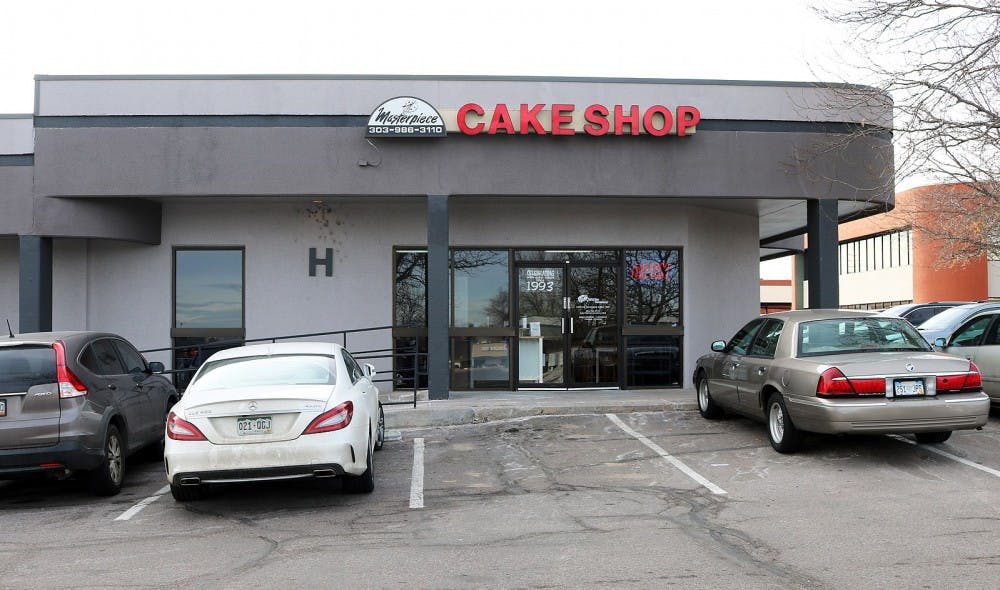Masterpiece Cakeshop owner Jack Phillips refused to design a specialty cake for the marriage of two gay men Charlie Craig and Dave Mullins in 2012. Though contemporary values make it easy for millennials to demonize Phillips’ refusal to bake the cake, a deeper analysis of the First Amendment highlights the importance of free speech and religious exercise considerations that are also at stake in a case like this.
Throughout his career, Phillips has consistently served ready-made products to any and all customers regardless of race, religion, gender or sexual orientation. However, he rejects custom cake orders that express certain messages or endorse events which conflict with his religious beliefs. When I initially heard about the case, my first inclination was to side with the couple on anti-discriminatory grounds. But the challenge is to determine whether Phillips’ refusal to bake a cake for a gay wedding qualifies as a discriminatory practice against the LGBT community or whether it is simply a legal expression of the free exercise clause.
The first step in deconstructing this debate is to draw the distinction between specially designed artistic products versus other commercial goods. Primarily, it is important to recognize that Phillips offered to sell the couple other ready-made cakes in the store. Acknowledging that fact is crucial when differentiating between the sale of regular commercial goods versus the commissioning of creative talent and energy to design artistic goods that violate a sincerely held religious belief. In making the cake, Phillips would have been forced “to use artistic skills to make an expressive statement, a wedding endorsement in his own voice and of his own creation.”
Before the case was appealed, the Colorado Civil Rights Commission ruled in favor of the gay couple under the the Colorado Anti-Discrimination Act , arguing that Phillips discriminated against the gay couple based on their sexual orientation in a “place of business engaged in any sales to the public and any place offering services … to the public.” The irony, however, is that the Commission had previously ruled in favor of three other bakeries — Azucar Bakery, Gateaux Ltd. and Le Bakery Sensual, Ltd. — who all refused to bake cakes containing biblical or anti-gay messages. How can we reconcile this judicial inconsistency by allowing select individuals to refuse making artistic creations that violate their conscience while denying others that same right?
The Commission argued that these three bakeries were legally permitted to refuse custom cake orders with anti-gay rhetoric on the grounds that the proposed cake designs included messages they personally believed to be derogatory, meaning they did not discriminate against customers solely because of their religious beliefs. On the other hand, the Commission claimed that Phillips’ refusal to bake a cake for a gay wedding qualified as status-based discrimination because he refused to artistically design a cake to celebrate a gay wedding even if the cake did not include any specific message regarding gay marriage.
The Supreme Court overturned the Commission’s decision in a 7-2 ruling, holding that “the Commission’s treatment of Phillips’ case violated the State’s duty under the First Amendment not to base laws or regulations on hostility to a religion or religious viewpoint.” The decision thus refuted the Commission’s “offensiveness standard” on the grounds that this policy allows the government to be hostile toward certain religious values while cherry picking other values it deems to be morally superior.
The Court’s opinion stated that the “government has no role in deciding or even suggesting whether the religious ground for Phillips’ conscience based objection is legitimate or illegitimate.” While the Court must remain firm in its stance on outlawing status-based discrimination, it does not have the power to force an individual to use his or her artistic talent for causes, events or ideas that conflict with his or her deeply held religious beliefs.
If the government can force a specialty cake baker to endorse a religious idea or event that is contrary to his religious beliefs, what prevents this standard from then applying to composers, writers, photographers, painters or any other artist for that matter? If you believe that Phillips should have been legally forced to bake a cake for a gay wedding, the government has no choice but to extend that policy to all other artists who are commissioned to make products that conflict with their religious beliefs. Under this logic, the government could force a Muslim artist to paint a picture of Jesus as the Messiah or require an LGBT song writer to compose a Christian hymn.
The most important task of the Court in cases relating to freedom of expression is to remain neutral on religious questions. Even when other people’s religious values conflict with our own moral understanding of what is right, we must respect the First Amendment protections that empower us and others to express those beliefs in the first place.
Audrey Fahlberg is an Opinion Columnist for The Cavalier Daily. She can be reached at opinion@cavalierdaily.com.







